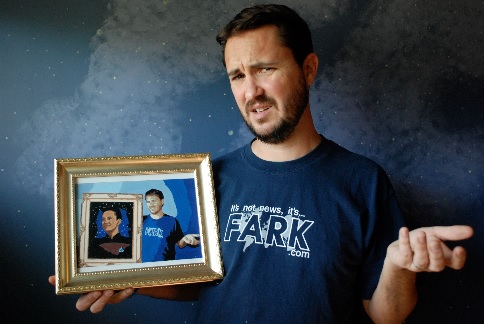 Wil Wheaton, for those unaware, is best known for his role as ‘Wesley Crusher’ on Star Trek: The Next Generation (1987 – 1994). He was a regular for the first four seasons, then a recurring guest for the final three.
Wil Wheaton, for those unaware, is best known for his role as ‘Wesley Crusher’ on Star Trek: The Next Generation (1987 – 1994). He was a regular for the first four seasons, then a recurring guest for the final three.
Every popular show has its haters and its hated, and Wheaton took a lot of flak from fans. He drew disproportionate heat in much the same way as Jar Jar Binks or every WWE Diva except Paige – not only for the character(s), but as proxy for larger issues of quality and awkwardness.
(It’s odd how much hardcore fandom is defined by virulent loathing of everything done by that which you love. Anyone who’s ever been part of a fan base with an average age higher than 15 knows what I mean.)
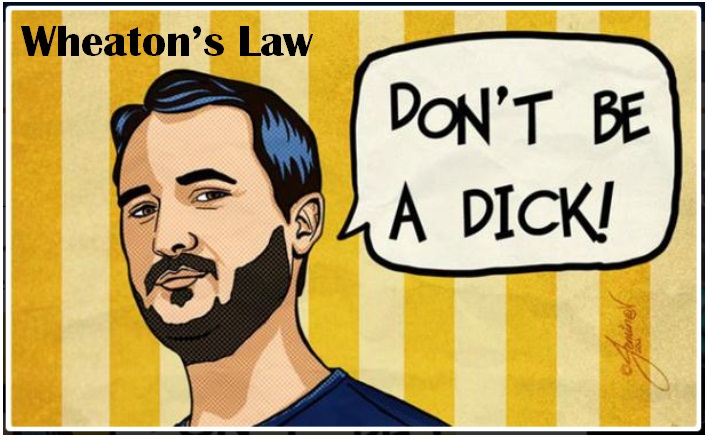
But Wheaton was great as what he was supposed to be – an awkward teenage nerdboy on a starship. He flew the Enterprise ‘D’ during its most heart-stopping encounters with the Borg! It was HIS facial expression when Riker ordered ramming speed that brought –
Er… what I’m saying is, he did fine. STTNG had its issues, but it was amazing more often than not once it found its footing.
Wheaton has continued acting and doing voice work, but also writes, blogs, and shares his passions for home-crafted beers and tabletop gaming. A cursory YouTube search will give you a taste of the variety of projects in which he’s involved, and the character he brings to everything he does:
[[{“type”:”media”,”view_mode”:”media_small”,”fid”:”1268″,”attributes”:{“alt”:””,”class”:”media-image”,”typeof”:”foaf:Image”}}]]
Wheaton had every opportunity to become bitter, or burnt out, or messed up like dozens of other ‘child stars’ whose careers don’t end up being all they’d dreamed (although it might be far worse when they do). He has every reason to complain or dysfunct.
For the most part, however, he just keeps doing his thing, remains gracious towards and about others, and stays a very real version of himself. He works everywhere doing everything, and even has his own ‘law’, like Murphy and Occam. Perhaps most importantly, he was nice to me on hockey Twitter once:
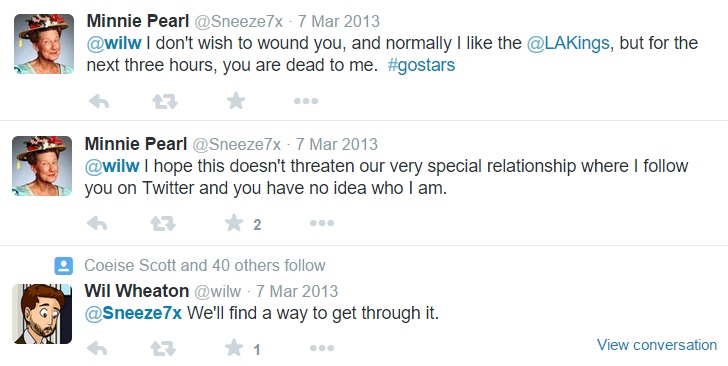
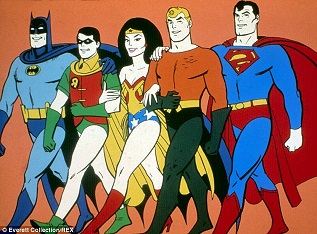
Aquaman I’ve written about before. It appears that newer incarnations of this particular icon are striving for a darker, bad-asser, skater-eyes type Aqua-hero than he up with which I grew. That’s fine, but the Aquaman of which I’m writing here was the ‘also along’ – the borderline misfit.
Superman would fly off to push the planet’s rotation in the opposite direction while Batman & Robin solved a scientific riddle and fought a few thousand destroyer-bots. Wonder Woman would take her jet to the lair of the Apocalyptic Mastermind and make him tell all while deflecting atom bombs off her bracelets.
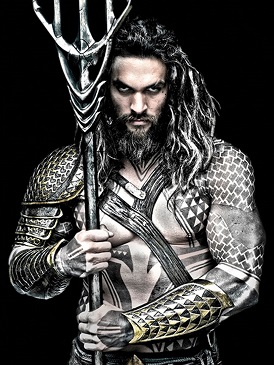
Even the Wonder Twins and Gleek would capture someone or save something from destruction, taking the form of a gorilla and an ice castle or whatever the #$%& it was they did, exactly.
Aquaman would be sent dramatically underwater, to coordinate some octopi or other sea life and rescue a few ships or somesuch. Fine in and of itself, but usually rather lame compared to the rest of the gang.
But he did it, sans whining. He didn’t worry about credit, or fairness, or points for style (he wore that horrible orange, for goodness’ sake). He had his role – his skill set – and that was enough.
I confess, I’m not looking forward to dark moody bad-ass Aquaman. It’s like fully armored, locked-and-loaded Gandhi coming to a big screen near you.
Octave Chanute was a bit of a celebrity in his day as well. He was a wildly successfully engineer who built the Chicago and the Kansas City Stockyards, along with as a number of bridges and other stuff that might not be considered particularly sassy or sexy by Kardashian or Duck Dynasty standards, but were a pretty big deal in the late 19th century. His unfulfilled passion, however, was manned flight.
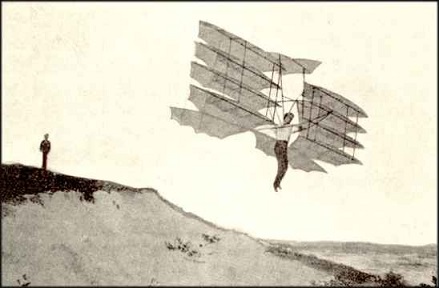 Chanute was an innovator who designed a few machines himself, but was too old to strap himself into some bizarre contraption and jump off a cliff. His greatest contribution to the field was his willingness to gather correspondence and information from all around the world regarding the aerial efforts of others. He compiled and edited specialized periodicals, and put people in touch with one another when he thought they might mutually benefit.
Chanute was an innovator who designed a few machines himself, but was too old to strap himself into some bizarre contraption and jump off a cliff. His greatest contribution to the field was his willingness to gather correspondence and information from all around the world regarding the aerial efforts of others. He compiled and edited specialized periodicals, and put people in touch with one another when he thought they might mutually benefit.
In other words, he acted as an internet of sorts for a sparse, oft-maligned, and diverse group of men sharing a similar vision. This ‘internet’ was seriously time and labor-intensive – handwritten with fountain pens and pulp-based white paper (another cutting edge creation of the day) – in lieu of dial-up.
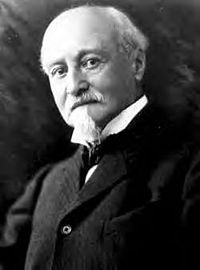 Occasionally he’d organize a dinner, or at least cigars in the den. That, I suppose, was the Skype of the day.
Occasionally he’d organize a dinner, or at least cigars in the den. That, I suppose, was the Skype of the day.
Chanute sought no credit, sharing freely with anyone interested and expecting others to do the same. He was a huge source of encouragement for two guys most of us HAVE heard of – the Brothers Wright – and the means by which many contemporaries first became aware of the amazing things going on at Kitty Hawk.
Any sci-fi fan knows Wheaton, just as anyone interested in the history of aviation is familiar with Chanute. Aquaman is better known but far more misunderstood, and chances are slim the average non-comic-book-reader could tell you much about him beyond the talking to fish thing.
They are easily dismissed as B-players, also-rans – the proverbial ‘red shirts’ who inevitably beam down with Kirk and Spock but never live long enough to beam back up. They are the Mindys to other people’s Morks. They are the squiggle dash next to the ‘1’ on your keyboard – always there, always assumed, but not… you know… NOT THE ‘1’ OR THE ‘E’.
And I celebrate them. Vigorously.
Not by pumping up their roles or exaggerating their impact – that would merely compound the larger error. And not by tearing down their better-known colleagues – the Patrick Stewarts and Captain Americas of the world do amazing things, and yay for them.
But by definition most of us will never be Dr. Who, or Wolverine, or Thomas Edison. We can love them and emulate them and buy their merchandise, but let’s not see our options – or the potential of those trusted to our care – as so tragically binary.
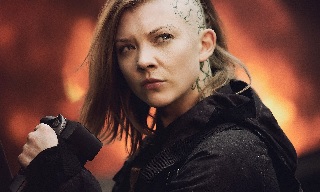 Abraham Lincoln was a pretty big deal, but so were the Robert Andersons and Joshua Lawrence Chamberlains – not to mention nameless thousands who showed up and did their part. Katniss may be central to ending the Hunger Games and overthrowing President Snow, but without the talent, focus, and drive of Cressida, Messalla, and their ilk, we have an entirely different finale.
Abraham Lincoln was a pretty big deal, but so were the Robert Andersons and Joshua Lawrence Chamberlains – not to mention nameless thousands who showed up and did their part. Katniss may be central to ending the Hunger Games and overthrowing President Snow, but without the talent, focus, and drive of Cressida, Messalla, and their ilk, we have an entirely different finale.
Obviously we never strive for mediocrity, but that’s not what we’re looking at here. We’re looking at people who worked hard, accomplished much, and mattered greatly – all with grace and style. They may stand in the shadows of giants, but they are mighty nonetheless.
More importantly, they find peace in the roles only they can fill, and refuse to allow the spotlights of others to shape their attitudes or their excellence.
We could stand to dial back our deification of the Washingtons, the FDRs, maybe even the MLKs. No need to tear them down, but let’s not let them block the entire view.
I think that I, for one, am going to try to do a better job teaching my kids to be Wil Wheaton. Or Aquaman. Or Octave Chanute.
[[{“type”:”media”,”view_mode”:”media_small”,”fid”:”1277″,”attributes”:{“alt”:””,”class”:”media-image”,”typeof”:”foaf:Image”}}]]
RELATED POST – Sam Patch, Part One
RELATED POST – Sam Patch, Part Two
RELATED POST – I’d Rather Be Aquaman
RELATED POST – Welcome to the Oligarchy: The U.S. Needs a New Mythology (from The Becoming Radical blog)

 There’s a kerfuffle going on in Texas (again) and Colorado (huh?) regarding the level of flag-waving patriotism in history textbooks and curriculums, including APUSH. The short version is this:
There’s a kerfuffle going on in Texas (again) and Colorado (huh?) regarding the level of flag-waving patriotism in history textbooks and curriculums, including APUSH. The short version is this: The Modern Liberal Academics are upset that these flag-waving right-wing extremists want to whitewash American history to feed their predetermined paradigm of American Exceptionalism. There’s something Orwellian (or at least Valdimir Putinian) about euphemizing (or simply ignoring) travesties like slavery, genocide, and Woodrow Wilson. The Academics would like more emphasis on effective questioning and understanding multiple points of view. American schools should be shaping good world citizens ready to confront things of which we cannot yet conceive, not drones painted red, white, and blue.
The Modern Liberal Academics are upset that these flag-waving right-wing extremists want to whitewash American history to feed their predetermined paradigm of American Exceptionalism. There’s something Orwellian (or at least Valdimir Putinian) about euphemizing (or simply ignoring) travesties like slavery, genocide, and Woodrow Wilson. The Academics would like more emphasis on effective questioning and understanding multiple points of view. American schools should be shaping good world citizens ready to confront things of which we cannot yet conceive, not drones painted red, white, and blue. This is about choosing
This is about choosing  I liked Aquaman.
I liked Aquaman. Why can we not allow Thomas Jefferson the same intellectual and moral complexity we accept in Mystique? Why accommodate a Batman who does dark twisted things so soccer moms feel safe but insist on ‘hero’ or ‘villain’ labels for Andrew Jackson or Malcolm X? Can we not accept that real people – who lived monumental lives and did big stuff – might be at least as unpredictable as Magneto or Malcolm Reynolds?
Why can we not allow Thomas Jefferson the same intellectual and moral complexity we accept in Mystique? Why accommodate a Batman who does dark twisted things so soccer moms feel safe but insist on ‘hero’ or ‘villain’ labels for Andrew Jackson or Malcolm X? Can we not accept that real people – who lived monumental lives and did big stuff – might be at least as unpredictable as Magneto or Malcolm Reynolds? In the same way that the people around you are so much more meaningful, useful, interesting, when they allow you to see something beyond the façade… in the same way heroes are far more heroic when you know what a mess they are, but they keep trying to do the right thing anyway… our history, our icons, our story resonates far more – not less – when we do our best to lay it all out there as whatever it is.
In the same way that the people around you are so much more meaningful, useful, interesting, when they allow you to see something beyond the façade… in the same way heroes are far more heroic when you know what a mess they are, but they keep trying to do the right thing anyway… our history, our icons, our story resonates far more – not less – when we do our best to lay it all out there as whatever it is.